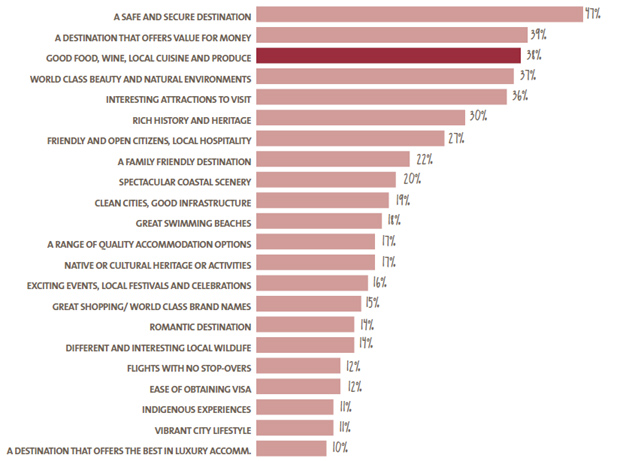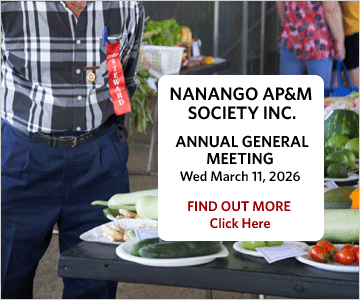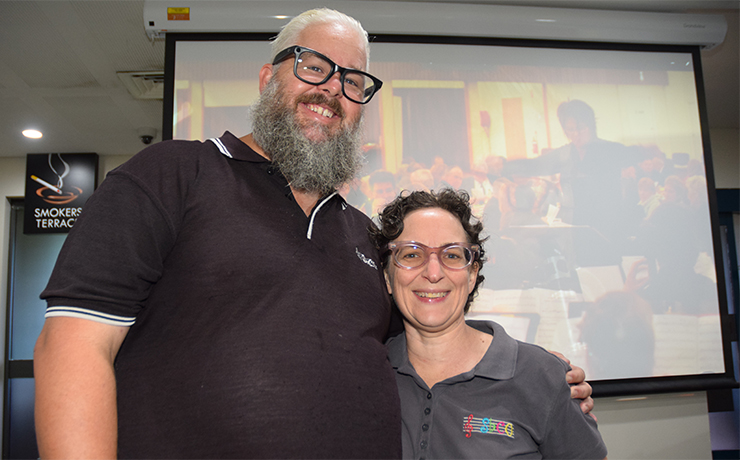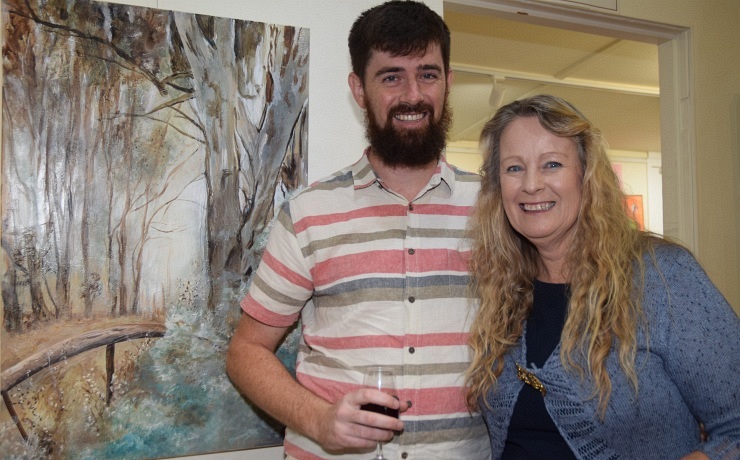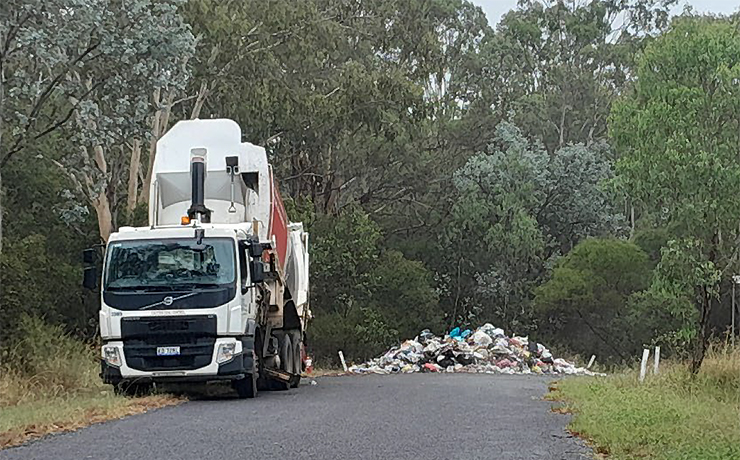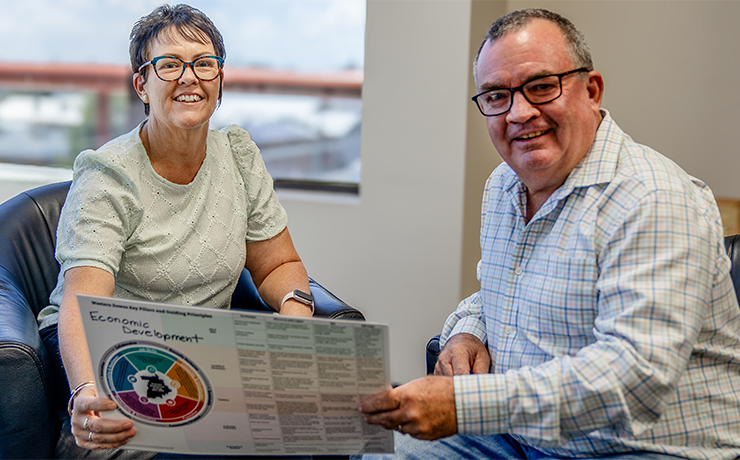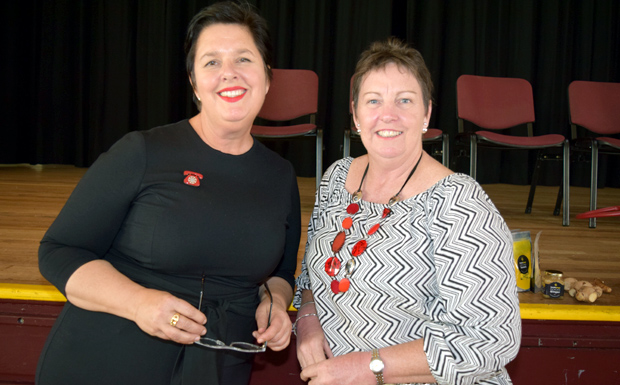
November 29, 2016
Visiting a region to try its local foods and wines is the third most popular reason for tourists to go anywhere, according to research by Tourism Australia.
“Good Food, Wine, Local Cuisine and Produce” ranked only slightly behind “A Safe and Secure Destination” and “A Destination That Offers Value For Money” as a potent tourism attractor.
And it ranked ahead of “World Class Beauty and Natural Environments”, “Interesting Attractions To Visit”, “Rich History and Heritage”, “Friendly and Open Citizens” and “A Family Friendly Destination”, the things many people would think were more important.
The eye-opening research was shared at a South Burnett Culinary Tourism workshop held at Kingaroy Town Hall on Monday afternoon.
Sixty South Burnett food producers and tourism operators who attended the event heard that Tasmania, Victoria, NSW and South Australia had worked this out long ago, and had done very well from tourism because of that.
But Queensland, which probably generates more food for the nation than any of those States, had overlooked this and concentrated instead on attractions such as the Great Barrier Reef, Gold Coast theme parks and the tropics.
These were far less potent attractors than a well-prepared and intelligently served plate of local food accompanied by a glass (or two) of local wine, and both tourism operators and food producers had suffered because of it.
The workshop, which was organised by South Burnett Directions to explore the potential of introducing culinary (or “gourmet”) tourism in the region, was led by a panel of four guest speakers.
Panel leader James Corvan, who successfully managed seven Regional Tourism Organisations in Queensland and the Northern Territory before he moved into tourism consulting, noted that neither the South Burnett or the Granite Belt were ranked amongst the top 20 food and wine destinations in Australia, despite their abundance of fresh local produce and wines.
“You’ve probably heard of someone wanting to visit the Barossa or the Yarra Valley or Margaret River for a food and wine type of holiday,” James said.
“But have you ever met anyone who said they’ve come to Queensland for that?”
To prove his point, James asked the audience to think about King Island beef.
“People pay a premium for anything with the name King Island on it because they think it’s good. But is King Island beef really any better than your beef? Probably not … but they’ve built a brand for themselves, and people are always willing to pay a premium for a brand.”
Chef Amanda Hinds, whose Indulge Bistro Cafe in Bundaberg has won a People’s Choice award in the last two Brisbane Times Good Food Guide Awards, told the audience she had built a very successful business by focussing solely on local foods and telling the story of those foods on her cafe’s menus.
“When visitors come to an area they’re not coming to eat ham that comes from Sydney, bacon that comes from Canada or eggs that were produced in the Northern Rivers – they’re coming for what your area produces, for your food and your wines,” Amanda said.
“So when you serve potatoes, tell them about Kumbia potatoes. When you give them avocado on toast, give them Blackbutt avocadoes and tell them about it. And when you serve wine, tell them about the vineyard where it was produced at Booie, Goodger or Moffatdale.
“That’s what tourists really want. And if you do it well they’ll tell their friends, and they’ll come visit, too.”
The meeting was also addressed by Brisbane food and travel writer Wendy Hughes, who spoke about the media’s almost insatiable demand for food-related stories, and Bundaberg ginger producer Anthony Rehbein who talked about culinary tourism from a food producer’s point of view.
Afterwards, there was a brief panel discussion and question-and-answer session before the meeting broke up and adjourned to the nearby Town Hall supper room, where guests could look over displays by local food producers, network and brainstorm.
South Burnett Directions will now analyse feedback from the meeting to see if the development of culinary tourism – perhaps through the creation of a local food and wine group – is an avenue worth pursuing.
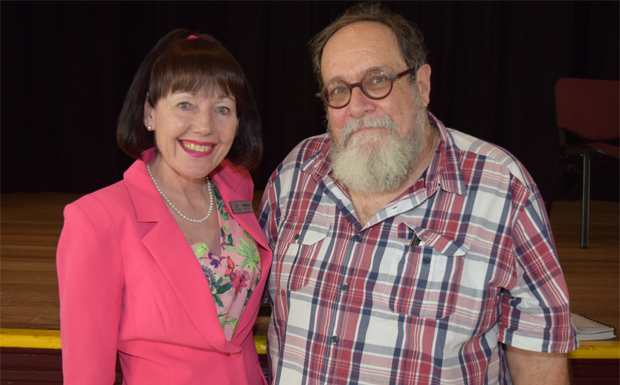
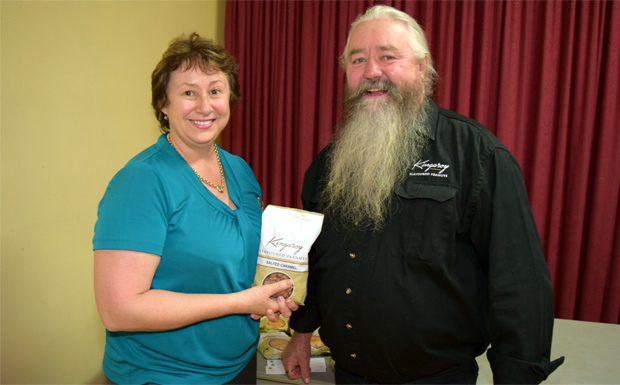
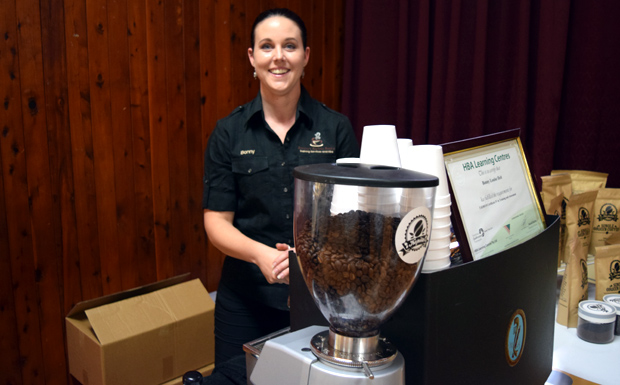
Infographic: The Top Reasons Tourists Go Anywhere
